Your skin serves as more than just a protective barrier; it’s a dynamic canvas that reflects your internal health. Often overlooked, this vital organ can offer clues about nutritional deficiencies, hormonal imbalances, and even chronic conditions. This article is here to decode the various signs your skin might be showing and what they could mean for your overall well-being. From dry patches to discolored spots, each symptom could be your body’s way of signaling an underlying issue. So, let’s delve into the fascinating world of skin health and discover what your skin is trying to tell you.
Contents
- 1 The Basics Of Skin Anatomy
- 2 Dry Skin And Nutritional Deficiencies
- 3 Oily Skin And Hormonal Imbalance
- 4 Breakouts And Lifestyle Choices
- 5 Eczema And Autoimmune Diseases
- 6 Psoriasis And Chronic Inflammation
- 7 Skin Discoloration And Underlying Health Conditions
- 8 Moles And Skin Cancer Risk
- 9 Remember To Listen To Your Skin
The Basics Of Skin Anatomy
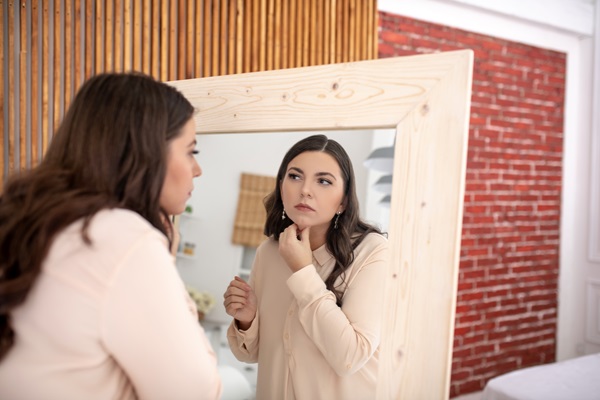
Understanding the structure of your skin is essential for interpreting the signs it displays. Your skin is composed of three primary layers: the epidermis, the dermis, and the subcutaneous tissue. The epidermis is the outermost layer, acting as a shield against environmental factors. The dermis contains blood vessels, nerves, and hair follicles, while the subcutaneous tissue is rich in fat and connective tissue. Each layer plays a unique role in maintaining not just your skin’s health but also its ability to signal internal issues.
To appreciate how your skin communicates about your health, it’s crucial to grasp its role as the body’s first line of defense. Your skin is teeming with immune cells that help fight off pathogens. It also produces oils and sweat, which contain antimicrobial properties. This complex system is always at work, and when something goes awry internally, your skin often shows the first signs. Recognizing these signs becomes easier when you understand the basics of skin anatomy.
Dry Skin And Nutritional Deficiencies
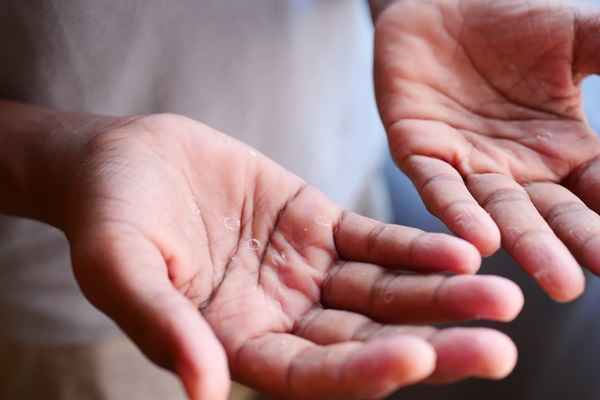
If your skin feels parched and flaky, it might be signaling more than just a need for moisturizer. Dry skin can often indicate a lack of essential nutrients, such as Omega-3 fatty acids or Vitamin E. These nutrients are vital for maintaining skin moisture and elasticity. A deficiency in these could not only make your skin dry but also lead to more severe conditions like dermatitis.
Hydration plays a significant role in skin health, and not just from the outside. Drinking enough water helps maintain the skin’s elasticity and suppleness. If you’re well-hydrated and still experiencing dry skin, it might be time to examine your diet or consult a healthcare provider for a more in-depth analysis. This could be your skin’s way of telling you that it’s not getting the nutrients it needs to function correctly.
Oily Skin And Hormonal Imbalance
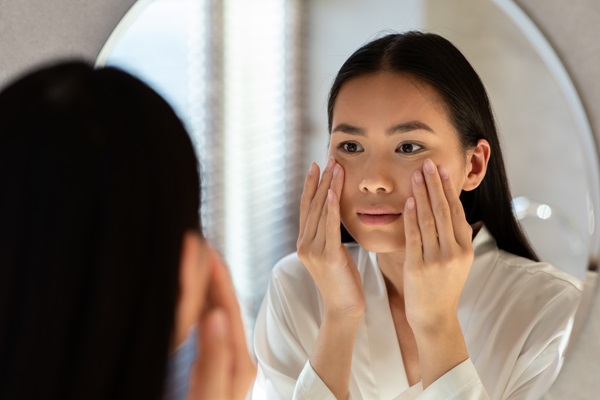
An oily sheen on your face might be more than just a cosmetic concern; it could be a sign of hormonal imbalance. Hormones like androgens stimulate the sebaceous glands in your skin to produce oil. An excess of these hormones can lead to oily skin and, in more severe cases, conditions like Polycystic Ovary Syndrome (PCOS).
While oily skin is often associated with adolescence, it can persist or even start in adulthood due to hormonal fluctuations. Conditions like PCOS, stress, or even certain medications can trigger an overproduction of oil. If you notice a sudden change in your skin’s oiliness, especially if accompanied by other symptoms, it might be time to consult a healthcare provider for hormone testing.
Breakouts And Lifestyle Choices

Acne and breakouts aren’t just a teenage plight; they can occur at any age and often signal underlying lifestyle issues. Factors like stress, poor diet, and lack of sleep can all contribute to skin flare-ups. Stress, for instance, triggers the release of cortisol, a hormone that can lead to increased oil production and clogged pores. Similarly, a diet high in sugar and processed foods can cause inflammation, another culprit behind acne.
Lack of sleep doesn’t just leave you feeling tired; it also takes a toll on your skin. During sleep, your body goes into repair mode, producing new skin cells and collagen. A lack of restful sleep can disrupt this process, leading to dull skin and breakouts. If you’re experiencing persistent acne, consider evaluating your lifestyle choices. Sometimes, a few simple changes can make a significant difference in your skin’s appearance and health.
Eczema And Autoimmune Diseases

Eczema, characterized by itchy, inflamed skin, can be more than just a localized issue; it may indicate an overactive immune system. In many cases, people with eczema also suffer from other autoimmune conditions like asthma or allergies. The skin inflammation seen in eczema is often a manifestation of an internal imbalance where the immune system mistakenly attacks healthy cells.
Understanding the link between eczema and autoimmune diseases can guide more effective treatment and management strategies. If you’re dealing with persistent eczema, it might be beneficial to consult a healthcare provider for a full autoimmune panel. Identifying and treating the root cause can alleviate skin symptoms and improve overall health.
Psoriasis And Chronic Inflammation

Psoriasis is another skin condition that can serve as a window into your internal health. Characterized by red, scaly patches, psoriasis is an autoimmune condition that speeds up the life cycle of skin cells. But it’s not just a skin issue; research suggests that psoriasis may be linked to chronic inflammation throughout the body, increasing the risk for conditions like heart disease and diabetes.
If you’re experiencing symptoms of psoriasis, it’s crucial to consult a healthcare provider for a comprehensive diagnosis and treatment plan. Treatment often involves managing chronic inflammation through medication and lifestyle changes. Addressing the underlying inflammation can improve your skin and reduce the risk of developing other health issues.
Skin Discoloration And Underlying Health Conditions
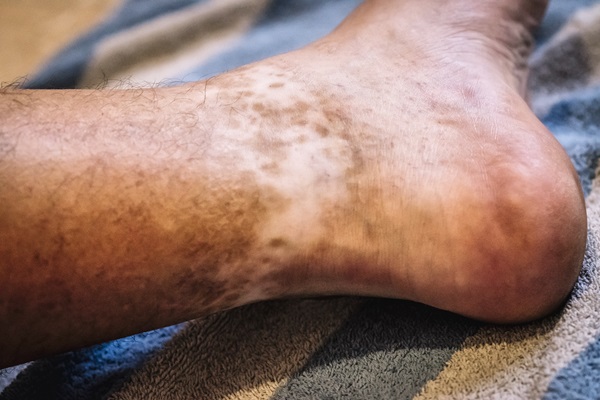
Changes in your skin’s color can be alarming and may indicate various underlying health conditions. For instance, a yellowish tint to the skin and eyes could be a sign of liver dysfunction. On the other hand, unusually pale skin might suggest anemia, a condition characterized by a lack of healthy red blood cells to carry oxygen throughout the body.
If you notice any sudden or persistent changes in your skin color, it’s essential to consult a healthcare provider for a thorough evaluation. Diagnostic tests can help identify the root cause and guide appropriate treatment. Remember, your skin’s appearance can be a crucial indicator of your internal health, and any changes warrant attention.
Moles And Skin Cancer Risk
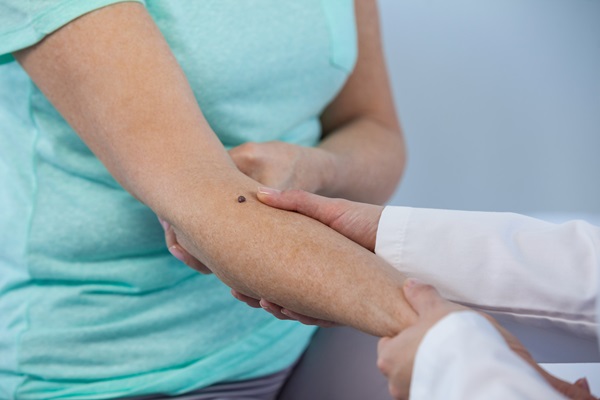
Moles are common and usually harmless, but they can sometimes be a sign of something more serious, like skin cancer. The ABCDEs of checking moles—Asymmetry, Border, Color, Diameter, Evolving—offer a simple yet effective way to monitor them. If a mole shows any of these signs, it’s crucial to consult a healthcare provider for further evaluation. Early detection is key when it comes to skin cancer, and a simple check can make all the difference.
Regular skin checks are not just for those who are already concerned; they should be a part of everyone’s healthcare routine. A dermatologist can provide a comprehensive skin examination and identify any moles or spots that may require further attention. If you have a family history of skin cancer or have had excessive sun exposure, regular checks become even more critical.
Remember To Listen To Your Skin
Your skin is more than just a protective covering; it’s a complex organ that communicates valuable information about your internal health. From dryness and oiliness to more severe conditions like eczema and psoriasis, each sign could be a clue to an underlying health issue. By paying attention to these signs and consulting healthcare providers for proper diagnosis and treatment, you can not only improve your skin’s health but also take proactive steps toward overall well-being. So, don’t ignore what your skin is trying to tell you; listen to it and take action.


